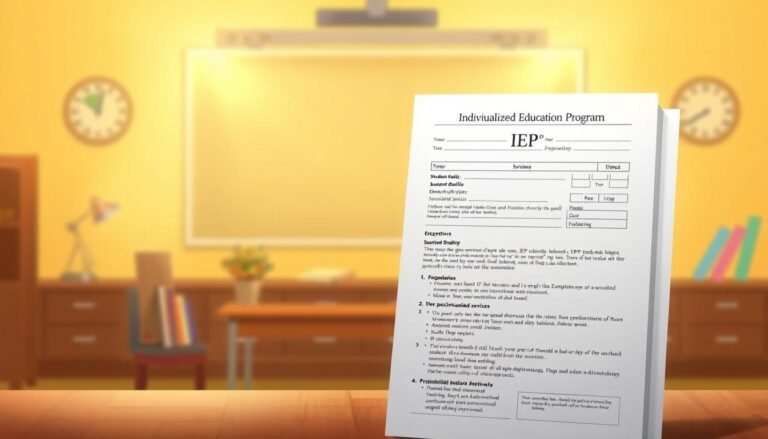
Empowering Young Minds: The Ultimate Guide to Boosting Self-Esteem in Children with Learning Disabilities
Introduction
In today’s fast-paced and competitive world, the importance of self-esteem in children cannot be overstated. Self-esteem serves as the foundation upon which children build their identity, face challenges, and cultivate healthy relationships. However, for children with learning disabilities, this foundation can be particularly shaky. As we delve into "Empowering Young Minds: Boosting Self-Esteem in Children with Learning Disabilities," we will explore strategies, case studies, and actionable insights to help these young individuals discover their unique potential.
Why Self-Esteem Matters
Self-esteem is closely linked to a child’s overall emotional and psychological wellbeing. It influences how they view themselves, interact with peers, and navigate educational environments. Children with learning disabilities may often face challenges that discourage a positive self-image, leading to feelings of inadequacy and isolation. By empowering young minds and nurturing their self-esteem, we equip them to face life’s obstacles with resilience and confidence.
Understanding Learning Disabilities
What Are Learning Disabilities?
Learning disabilities are neurological conditions that affect how individuals process information. These conditions can impact various areas, including reading, writing, math, and comprehension. Common learning disabilities include:
- Dyslexia: Difficulty with reading and language processing.
- Dysgraphia: Struggles with writing and motor skills.
- Dyscalculia: Challenges with understanding numbers and math concepts.
- Attention-Deficit/Hyperactivity Disorder (ADHD): Difficulties with attention regulation and impulse control.
The Impact of Learning Disabilities on Self-Esteem
It is crucial to recognize that children with learning disabilities often are aware of their struggles, leading to lowered self-esteem. They may experience:
- Social Isolation: Difficulties in academics can create barriers in forming friendships.
- Academic Anxiety: Constantly facing challenges in learning can lead to increased anxiety about school performance.
- Negative Self-Perception: Kids may internalize their struggles, affecting their overall self-worth.
Understanding these impacts is a crucial first step in "Empowering Young Minds: Boosting Self-Esteem in Children with Learning Disabilities."
Strategies to Boost Self-Esteem
1. Foster a Growth Mindset
Encouraging a growth mindset is essential in promoting resilience and self-confidence. Children who believe intelligence can grow with effort are more likely to embrace challenges.
- Case Study: A school in California implemented a growth mindset curriculum. Teachers praised effort over ability, leading to a notable increase in students’ self-esteem and academic performance, particularly among those with learning disabilities.
2. Celebrate Small Wins
Every achievement deserves recognition, no matter how small. Celebrating small victories encourages children to appreciate their progress rather than focus solely on their challenges.
| Achievement Type | Example |
|---|---|
| Academic | Completing a difficult math problem |
| Social | Making a new friend |
| Personal Development | Trying a new activity |
3. Create a Supportive Environment
Encouraging supportive relationships at home and school can significantly bolster a child’s self-esteem. Designate time for open conversations about struggles and triumphs.
- Case Study: A family in New York established a "Proud Moments" board at home, where they documented daily achievements. Their child with dyslexia began to view the learning process more positively, boosting self-esteem levels.
4. Set Realistic Goals
Setting manageable, short-term goals can make larger objectives feel more achievable. Break complex tasks into smaller, actionable steps.
- Example: Instead of aiming to read an entire book, a child could focus on reading a single chapter, gradually building confidence and competence.
5. Encourage Participation in Extra-Curricular Activities
Getting involved in activities outside of academics can help children develop new skills, find passions, and boost self-esteem.
- Case Study: A student with ADHD joined a local soccer team. The experience not only improved his physical skills but also fostered friendships, enhancing his self-worth.
6. Utilize Therapy and Counseling
Professional support can provide children with coping strategies to deal with their learning disabilities and associated self-esteem issues.
- Example: Cognitive-behavioral therapy has helped children restructure negative thought patterns, leading to improved self-appreciation.
Enhancing Communication Skills
Effective communication is a vital component in self-esteem development. Helping children express their feelings, struggles, and successes allows them to develop a robust self-identity.
Active Listening
Teach parents and educators to practice active listening. Allowing children to voice their thoughts helps them feel valued and understood.
Role-Playing
Engage in role-playing exercises that enable children to practice conversations in social scenarios. This approach can diminish anxiety and build confidence in communication.
The Role of Educators and Parents
Creating an Inclusive Classroom
Educators can take active roles in ensuring that classrooms are inclusive. Here are some actionable steps:
- Use differentiated instruction techniques to meet varying learning needs.
- Facilitate peer support groups to foster collaboration among students.
- Offer regular feedback that emphasizes progress rather than failure.
Parental Involvement
Parents can continue the support at home by:
- Attending school meetings and advocating for appropriate accommodations.
- Encouraging open dialogues about school experiences.
- Reinforcing the idea that learning differences are a part of one’s uniqueness.
The Importance of Community Support
Building a community around children with learning disabilities can provide a strong network of encouragement. Local organizations and support groups can facilitate:
- Group activities that create social interaction.
- Workshops that educate parents about learning disabilities and self-esteem.
- Resources for tailored educational strategies.
Conclusion
Empowering young minds and boosting self-esteem in children with learning disabilities is not merely a noble endeavor—it is essential for their development. By implementing the strategies discussed here, we can work towards building a society that values diversity and supports every child’s journey toward self-acceptance and success.
Call to Action
Let’s commit to being champions for these young minds. Every small effort counts, and each supportive word can make a world of difference.
FAQs
1. What are some signs that a child with learning disabilities struggles with self-esteem?
Children may exhibit signs like withdrawal from social situations, reluctance to participate in school activities, or negative self-talk.
2. How can I support my child with learning disabilities at home?
Encourage open communication, celebrate their achievements, and provide a structured yet loving environment that nurtures growth.
3. What role does peer interaction play in boosting self-esteem?
Positive peer relationships can provide emotional support, reduce feelings of isolation, and help children feel accepted and valued.
4. Are there specific activities that help boost self-esteem in children with learning disabilities?
Individual activities like art, music, or sports can provide opportunities for expression and achievement, fostering confidence.
5. How do I approach schools about my child’s learning disabilities?
Be proactive in communicating with educators, providing them with documentation of the disability, and discussing specific needs and accommodations.
By fostering a supportive environment and implementing effective strategies, we can truly empower young minds and boost self-esteem in children with learning disabilities, enabling them to flourish in every aspect of their lives.
















